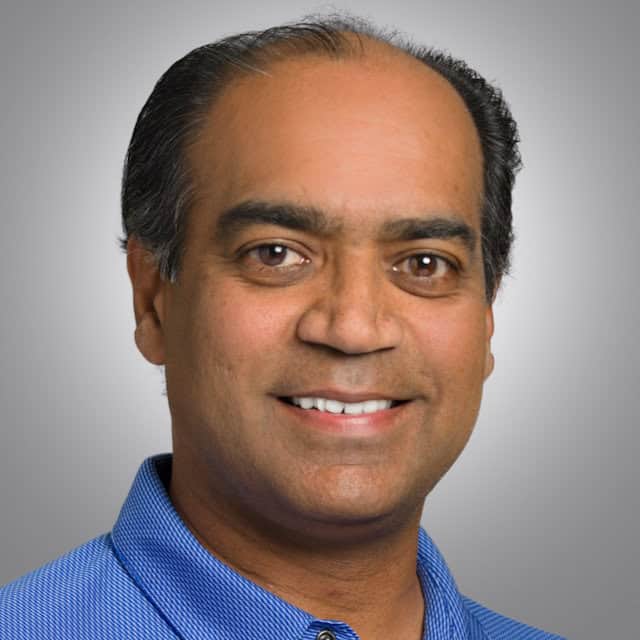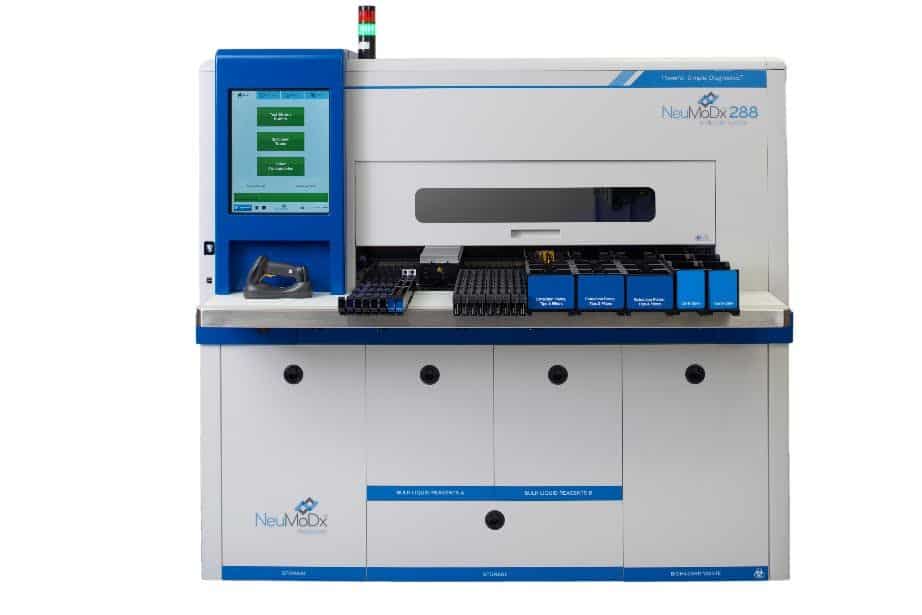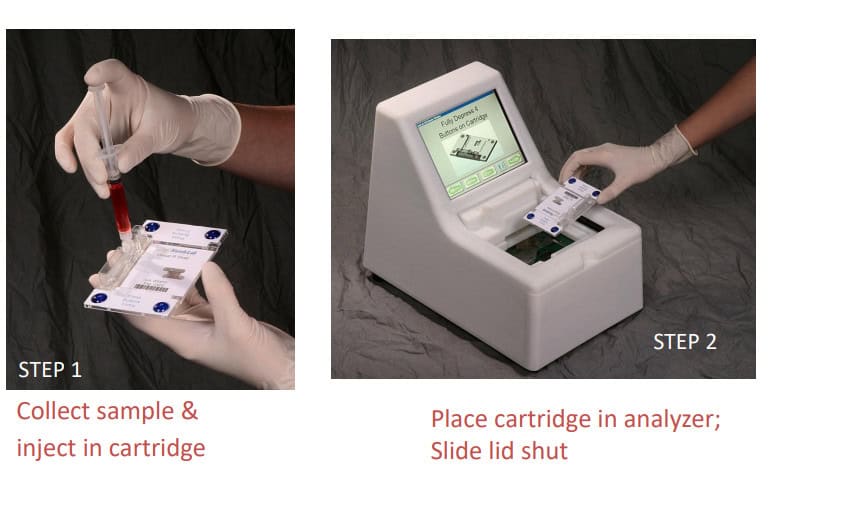
Sundaresh Brahmasandra recognized as 2024 Alumni Merit Award recipient
Brahmasandra (PhD ‘01), a leader in diagnostics and molecular innovation, has been selected as the Michigan Chemical Engineering Alumni Merit Award recipient.

Brahmasandra (PhD ‘01), a leader in diagnostics and molecular innovation, has been selected as the Michigan Chemical Engineering Alumni Merit Award recipient.
Sundaresh Brahmasandra, a seasoned expert in diagnostics and molecular technology, has over 25 years of experience in leadership roles across various companies. His foundation in engineering and health care innovation was deeply influenced by his time at the University of Michigan, where he studied chemical engineering. This experience shaped his systematic approach to problem-solving, enabling him to drive advancements in health care diagnostics and improve patient outcomes.
While at Michigan, Brahmasandra honed his skills in the Department of Chemical Engineering in the Burns lab under the leadership of T.C. Chang Professor of Engineering Mark Burns. In the lab, he developed a strong understanding of both theoretical and applied sciences. This academic foundation, combined with the university’s rich and collaborative research environment, played a crucial role in his innovative approach to diagnostics. The department’s focus on combining chemical engineering principles with emerging health care technologies helped Brahmasandra navigate the complexities of developing user-friendly, room-temperature stable diagnostic systems—an area where he later made a significant impact co-founding and leading the product development team at HandyLab. HandyLab was acquired by BD in Nov 2009 and the product rebranded as the BD MAX continues to be a significant part of the BD Molecular Diagnostic product portfolio, even 15 years later. The Wolverine Venture Fund was an investor in the company and realized the largest financial exit by a student-led venture fund through this acquisition.

“Studying in Mark Burns’ lab was pivotal; it was the catalyst that led me into the DNA analysis route. The experience turned out to be a blend of ‘right place, right time, and right technology’, and it really influenced my career trajectory,” Brahmasandra said.
After HandyLab, at NeuMoDx Molecular, Brahmasandra applied his Michigan training to bridge the gap in the level of automation between clinical chemistry and molecular diagnostics. His work led to the commercialization of the NeuMoDx 288 molecular diagnostic system in 2018. Though initially modest in scale, with revenues around 10 million, the COVID-19 pandemic dramatically expanded the company’s reach. HandyLab NeuMoDx’ COVID-19 assays were among the earliest to receive FDA emergency use authorization for COVID-19 testing, leading to a tenfold revenue growth.

Despite significant supply chain shortages and workforce limitations, the diagnostic solutions Brahmasandra helped develop became critical in combating the pandemic. They were deployed in laboratories and hospitals nationwide, including high-profile institutions such as St. Jude’s Children’s Hospital System and NY State Dept of Health Labs. His leadership during this period not only helped expand the company’s impact but also demonstrated the critical role scalable diagnostic tools play in global health crises.
In 2020, HandyLab NeuMoDx was acquired by Qiagen, a German company that had been an early investor. The acquisition posed new challenges for NeuMoDx, particularly in scaling manufacturing and operations during a pandemic. His decision to step away from Qiagen in 2021 was influenced by a desire to remain impactful, which he felt was becoming difficult in Qiagen’s larger corporate structure.
“Despite the acquisition’s bittersweet end—Qiagen would later shut down the product line in a post-COVID market—I’m extremely proud of the what we accomplished at NeuMoDx including the contribution NeuMoDx made in expanding access to critical diagnostic tools during the pandemic,” Brahmasandra said.
Reflecting on his career, Brahmasandra credits the University of Michigan as a cornerstone of his success. His time in the Department of Chemical Engineering not only provided a robust technical foundation but also exposed him to the challenges and rewards of commercializing NIH-funded research.
“Initially, I didn’t fully grasp the value of commercialization. The prevailing thought was, ‘Why would you need to patent or commercialize NIH-funded research? Isn’t it supposed to be free?’ But Handy and I soon realized that without commercialization, groundbreaking discoveries often just sit on a shelf,” Brahmasandra said. “You need investors willing to take risks, and for that, they need exclusive access to the technology.”

He credits his mentors and local venture capitalists in Ann Arbor for guiding him through the complex process of bringing innovative diagnostic tools to market.
After leaving Qiagen, Brahmasandra briefly ventured into consulting before realizing his passion lay in hands-on leadership. In 2022, he joined Strata Oncology, a precision oncology startup, as Chief Operating Officer. However, Strata faced challenges in scaling, leading him to depart after a year. By early 2023, Brahmasandra had taken on a new challenge at Luminex, where he currently serves as Head of Research and Development and Clinical Affairs. His work at Luminex aligns with his long-held vision of advancing health care diagnostics, particularly in the area of multiplex testing for critically ill patients.
“Looking ahead, diagnostics will be defined by a multi-modal approach, integrating various detection methods such as molecular, immunoassays, and chemistry,” Brahmasandra said. “AI will play a critical role in synthesizing these diverse inputs into cohesive, actionable results for health care providers.”
His background from the University of Michigan’s chemical engineering program gives him a unique perspective on how to integrate these complex systems.
“Improving patient outcomes through cutting-edge diagnostics is not just a professional goal but a personal mission,” Brahmasandra said. “The recent impact of our technology during COVID, and seeing how it allowed for earlier diagnosis and treatment, really reinforced that commitment. It’s moments like these that keep me dedicated to this field.”
Looking to the future, Brahmasandra remains focused on pushing the boundaries of health care diagnostics. Whether through AI integration, multi-modal systems, or mentoring young professionals, his goal remains clear: to continue advancing diagnostic technology for the betterment of patient care—a mission deeply rooted in his early experiences at the University of Michigan.